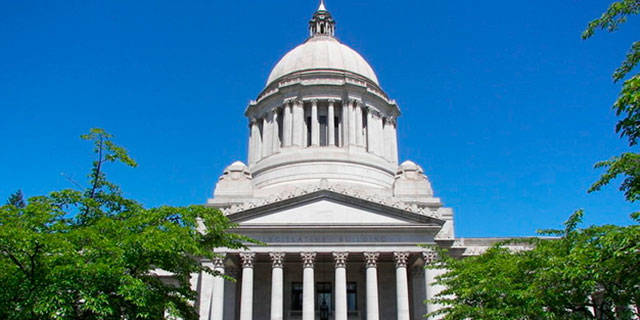By Emma Scher
WNPA Olympia News Bureau
After state voters soundly rejected a carbon fee initiative, climate advocates in the Legislature are trying to curb climate change with a bevy of smaller reforms.
Four environmental reform bills introduced Jan. 10 aim to reduce food waste, tighten emission limits, set stricter fuel standards and encourage the use of commercial car washes.
This is a change from the precedent-setting climate policy strategy of the past. Carbon tax and carbon fee initiatives were soundly rejected by Washington state voters in 2016 and 2018 respectively. But House Environmental Committee chair Joe Fitzgibbon, D-Burien, said the state’s commitment to the environment still makes Washington a national leader in the area.
“Carbon tax was never the silver bullet in climate change, it’s one tool in the toolbox,” he said. “It’s time to take a step back and try it sector by sector.”
This approach is similar to Gov. Jay Inslee’s climate package, which proposed a wide range of environmental policies such as orca conservation and an emphasis on creating jobs in the clean energy industry. This is a sharp contrast to large policy proposals of the past legislative sessions, like a carbon tax or cap-and-trade system.
“What used to be a graph on a chart is now ash on the hood of your car” from forest fires Inslee said on Jan. 10. “We’re at a tipping-point moment.”
Some of the environmental issues like salmon recovery and reducing carbon emission have bipartisan support, but state Democrats and Republicans disagree on where the funding will come from. Senate minority leader Mark Schoesler, R-Ritzville, anticipates that policies to lower carbon standards will raise taxes.
“We can get better if we got off the perpetual tax bandwagon,” Schoesler said. He wants lawmakers to find solutions “that don’t tax hardworking taxpayers.”


